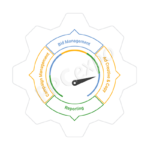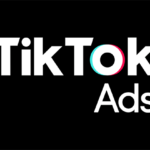Google has a set of rules, or “algorithms,” that help it find the best answers when you search for something. It uses these rules and different factors to show pages in order of their importance on what we call search results pages.
When Google first started, it only changed their algorithm a few times. But now, Google changes these rules thousands of times every year.
Most of the time, these changes are so small that we don’t even notice them. But sometimes, Google makes big changes to the rules that can really change what we see when we search for something.
And they’ve made three significant updates to their algorithm over the last 6 months. What were they all about, and how can an SEO or digital marketing agency keep up with these constant updates?
The Importance of Keeping Up with Algorithm Updates
The landscape of Search Engine Optimization (SEO) is continuously evolving, primarily driven by frequent updates to search engine algorithms. Staying updated with these changes is crucial for SEO professionals. When algorithms change, the strategies that once helped websites rank higher in search results may no longer work and could even harm a site’s rankings. By keeping up with algorithm updates, SEOs can adapt their tactics in line with what search engines deem important, maintaining or improving their sites’ visibility in search results.
Understanding algorithm updates can help SEOs create high-quality, relevant content that search engines favor, enhancing user experience. Lastly, regular algorithm changes often aim to penalize manipulative practices and reward genuine, user-focused strategies. For example, recent updates have limited the number of keywords you can target per page, while others have cracked down severely on unnatural backlinks. Staying abreast of these changes allows SEOs to avoid penalties and align their practices with the overarching goal of search engines: to provide users with the most relevant and valuable content.
Google’s Big 2022 and 2023 Algorithm Updates
As mentioned, Google has rolled out three large core updates in recent months. Let’s take a look at each of them:
December Helpful Content Update
Google confirmed that it had rolled out another update to its search results, termed the “December 2022 helpful content update”. The update, which commenced on December 5 and took two weeks to fully implement, enhanced the search engine’s algorithm, improving its classifier and operating across all languages. The update was built on Google’s helpful content system introduced in August 2022, a system designed to reward webpages offering unique value to users rather than focusing on search engine optimization.
While specific details about new signals or adjustments were not disclosed, the update provided an opportunity for websites negatively impacted by the August update to recover. Conversely, it may have brought adverse effects for sites that experienced positive or no impact from the previous update. The visibility of the effects of this update compared to its relatively unobtrusive predecessor remained to be seen.
December Link Spam Update
Google started rolling out the December 2022 link spam update on December 14, which took up to two weeks to complete.
Google confirmed this update to its spam detection system, dubbed the December 2022 link spam update. The purpose of the update was to upgrade Google’s spam detection system with the ability to find purchased links and identify domains primarily used to pass links to other sites.
The December 2022 link spam update harnessed Google’s AI-based spam-prevention system, SpamBrain, to neutralize unnatural links. In addition to directly detecting spam, SpamBrain gained the capability to identify sites purchasing links and those used for building outgoing links. Google had advised that rankings could change as the December 2022 link spam update worked to neutralize unnatural links, thus removing any signals passed to the linking domain.
This update had the potential to influence search results in all languages, creating a widespread impact. The effect on individual sites depended on their link acquisition practices and how they linked out to other pages. For instance, if an affiliate link was embedded within a body of text, it had to be qualified with a rel=sponsored tag. Non-compliance could have resulted in the site being negatively affected by the link spam update. Links in guest posts required a rel=nofollow tag to avoid issues with Google.
March Core Algorithm Update
Google let everyone know that they started the March 2023 core algorithm update, something that’s known to change where websites appear when we search for something. This means people who work on websites (like SEO professionals) need to be ready to change their strategies.
Google said it would share the details on its ranking history page once the update was completely done. These updates often take weeks, and during that time, the order of search results can change a lot. It makes it hard to know exactly what the update did until it’s nearly finished.
Google often changes its rules to get better at understanding and sorting websites, so we can find the best results for our searches. While we didn’t know all the details about the March 2023 update, we could guess some things based on past updates. These updates took days or weeks to fully happen, and during that time, website owners needed to watch their site’s traffic and keyword rankings closely to see how the update affected them. Things like having good content, a fast website, a mobile-friendly site, and proper indexing all played a big part in a site’s ranking.
The March 2023 update was a big reminder for people working on websites to stay informed and ready to adapt. By focusing on good content, improving technical parts of their site, and always thinking about what their audience needs, they could stay competitive.
Consider Working with a Digital Marketing Agency to Keep Up with Google
Working with a digital marketing or SEO agency is a strategic move to stay ahead in the constantly evolving SEO landscape. These agencies are proficient in tracking and understanding Google’s algorithm updates, enabling them to adapt strategies swiftly and effectively. They have the expertise to optimize your content, enhance website performance, and ensure mobile-friendliness, all key to maintaining high search rankings. They monitor your site’s metrics, offering insights to improve your SEO strategy.
Partnering with a digital marketing agency can be a game-changer, helping you navigate Google’s updates successfully and enhancing your online visibility.





